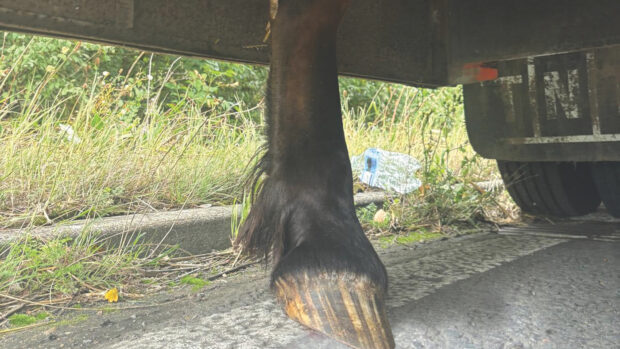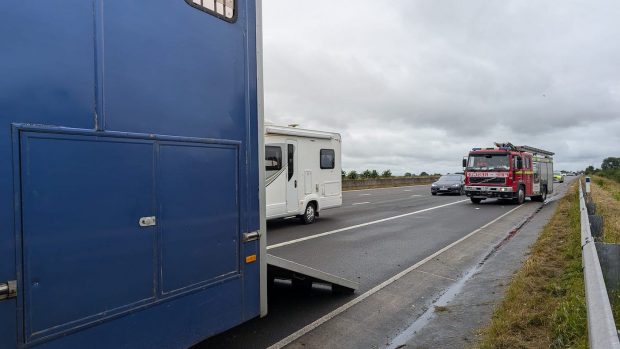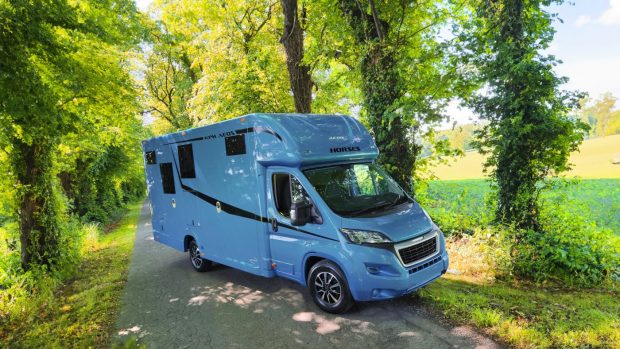Q: I have been a horseowner for about three years and currently own a wonderful schoolmaster who has given me lots of confidence and taught me the basics in riding and horsecare.
I am planning to compete at local level this season and have bought a horsebox. My first show is in three weeks time and, although I am really looking forward to it, I have little knowledge of travelling horses.
How can I make the day as stress-free as possible for me and my horse? My horse has travelled a lot in the past and I know he loads and travels well.
A: Good organisation and forward planning is the key to stress-free travel. Draw up a checklist from the following and tick off each job as you complete them.
A few days prior to the show, check the tyres and lights on your vehicle, the water and oil levels. Make sure the partition fixings are well oiled and can be opened and closed easily.
If the vehicle has been standing around for any length of time, start the engine and give the lorry a run and fill up with fuel the day before.
Check the location of the showground and work out your route in advance. Estimate how long the journey will take and aim to arrive at the showground with plenty of time to collect your number, find the right ring and prepare your horse.
Pack your lorry the day before so you’re not rushing around on the morning of the show. If your horse worries before travelling, do this when he is out of sight as horses soon sense when an outing is imminent and some can become quite stressed.
If it’s not safe to leave things in your lorry overnight, you can at least bag up your riding gear and leave it in a pile ready for the morning. If you do, pack up the lorry before you load your horse as he may fidget if he has to stand in the box while the engine is running.
Remember to cater for all weathers and include a complete change of clothes for yourself and a New Zealand rug for your horse in case you break down.
Make sure you have plenty of fresh water on board for drinking, washing your horse down and cleaning off any last minute stains. Take at least two haynets, one for the outward and one for the return journey. Feeding your horse hay during a journey will help occupy and relax him but the haynet must be tied high enough to prevent him becoming caught up in it. It’s also a good idea to have some spare hay with you in case the journey is delayed for any reason.
When it comes to travelling to the show, you should try and be confident when you are driving the horsebox. Drive steadily and think well ahead. Try to avoid any sharp braking or accelerating and always remember that your horse is unable to see where he is going, so he may be tense.




